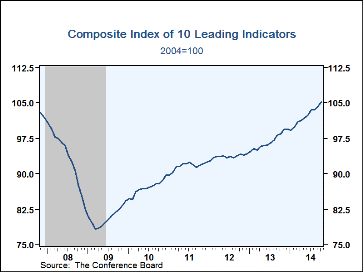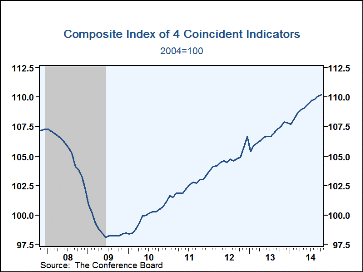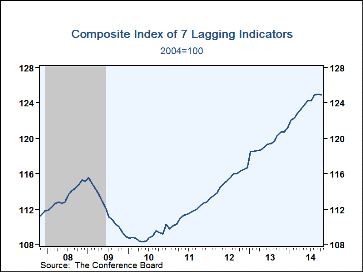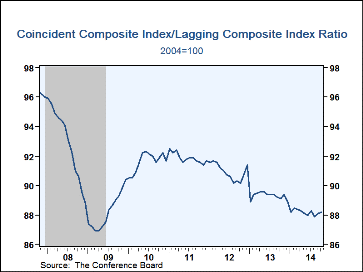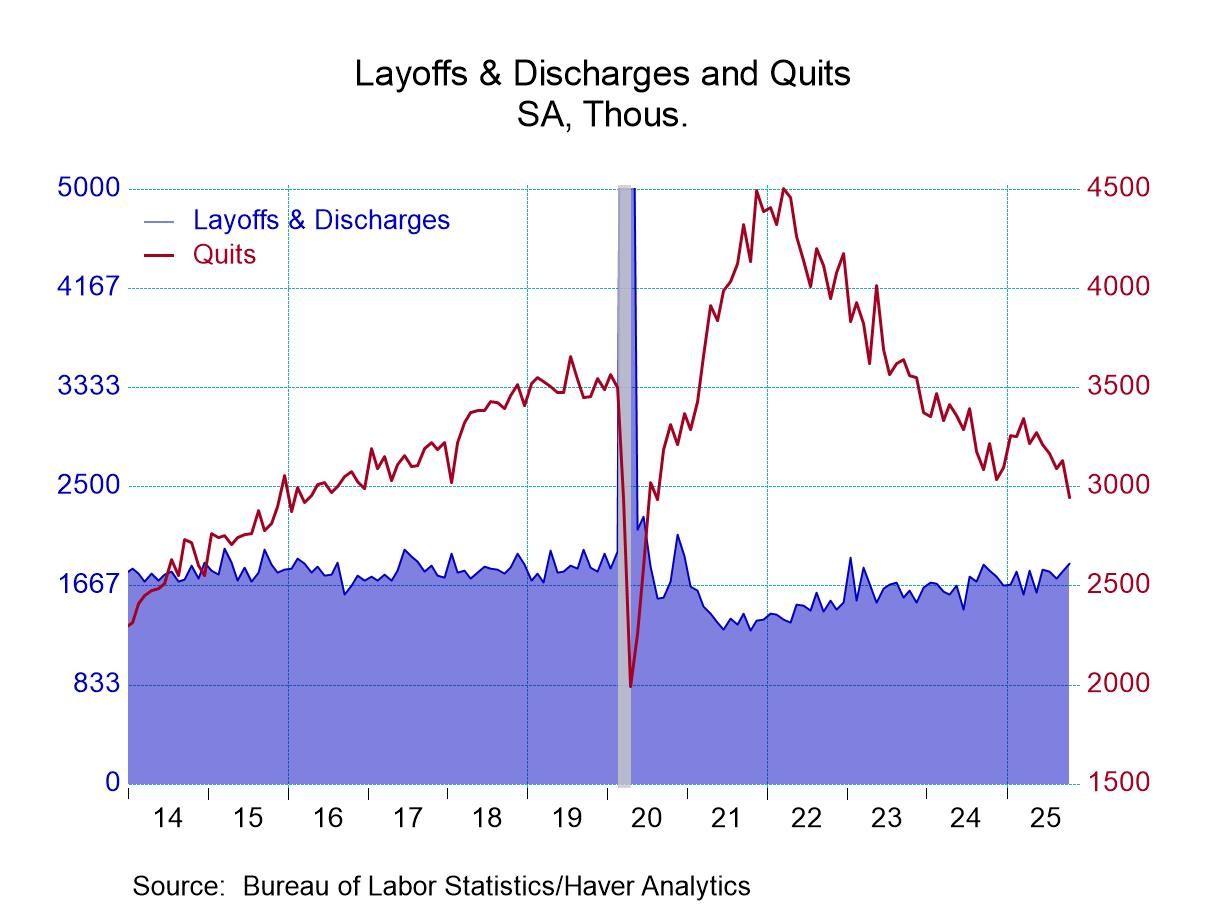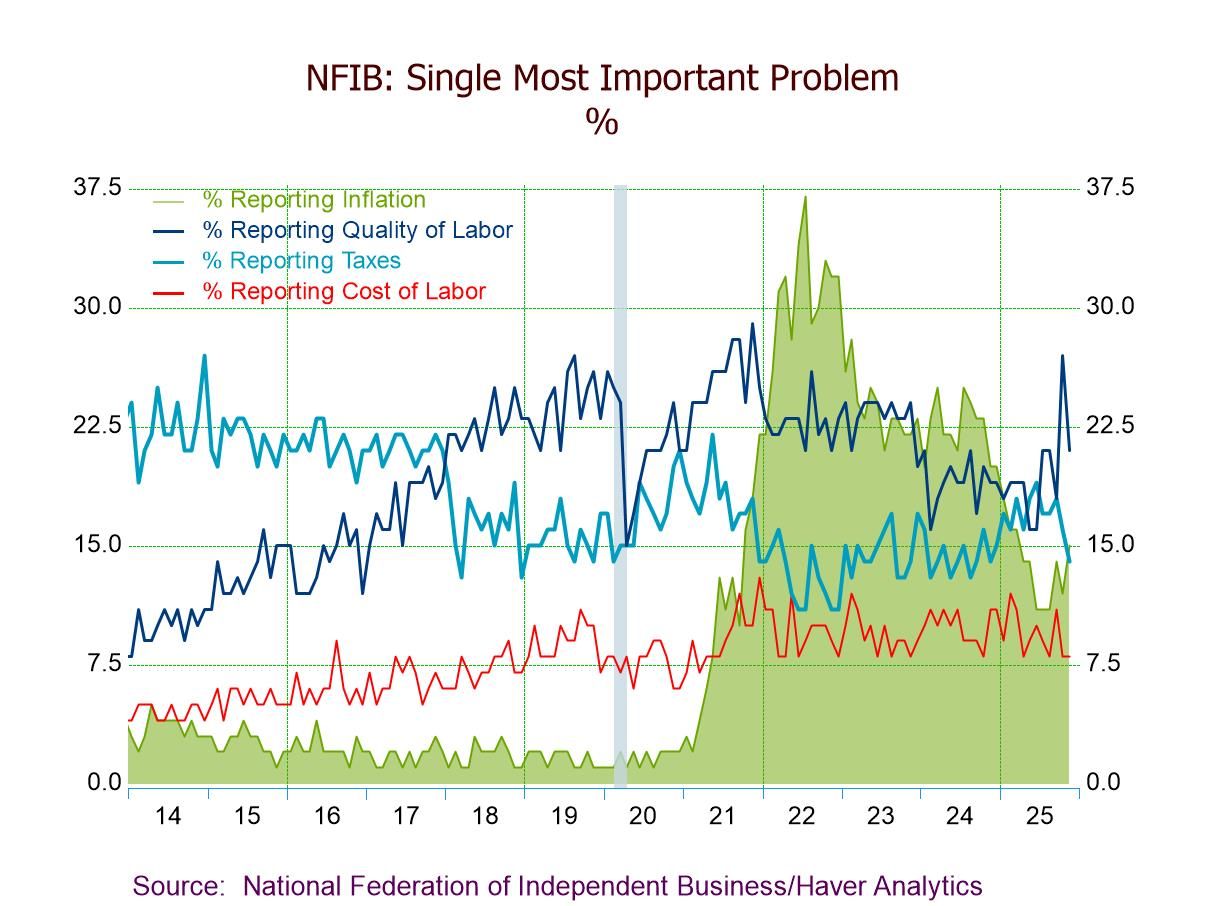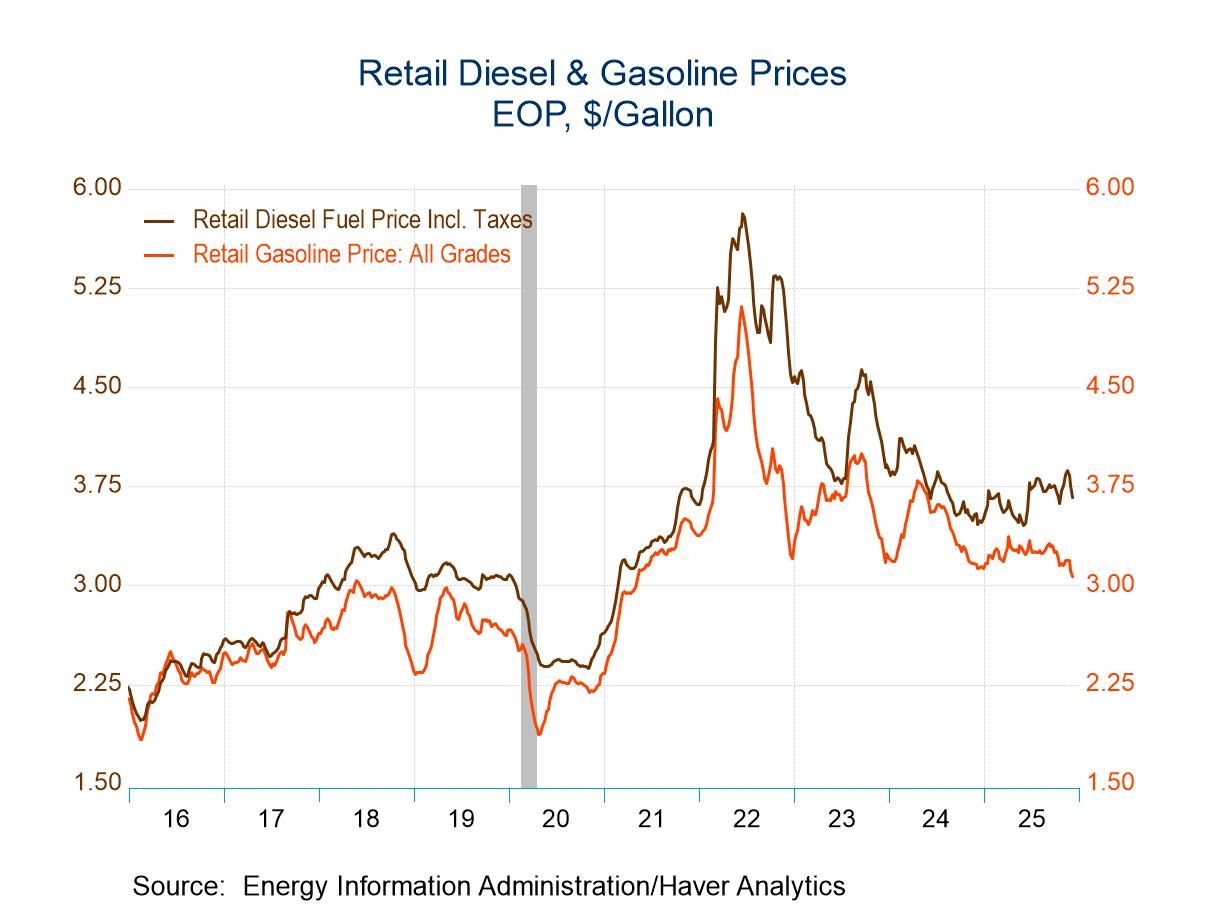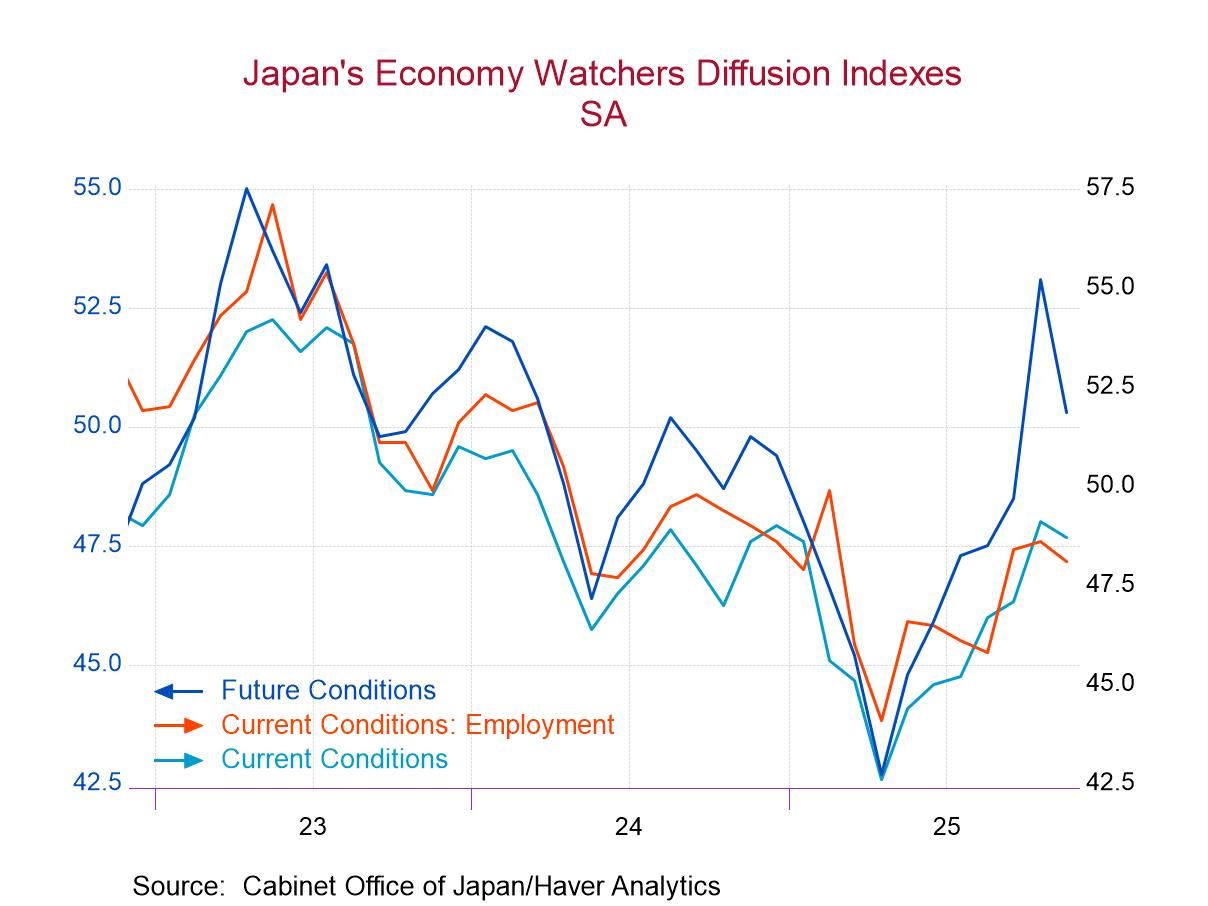 Global| Nov 20 2014
Global| Nov 20 2014U.S. Leading Economic Indicators Index Firms
by:Tom Moeller
|in:Economy in Brief
Summary
The Index of Leading Economic Indicators from the Conference Board increased 0.9% last month (6.8% y/y) following a 0.7% September rise, revised from 0.8%. The index level was the highest since July 2007. Eighty five percent of the [...]
The Index of Leading Economic Indicators from the Conference Board increased 0.9% last month (6.8% y/y) following a 0.7% September rise, revised from 0.8%. The index level was the highest since July 2007. Eighty five percent of the component series improved m/m. A steeper interest rate yield curve, fewer initial claims for jobless insurance, an improved ISM New Orders index, the leading credit index and more building permits led the way upward.
The index of coincident indicators ticked 0.1% higher (2.5% y/y) following a 0.3% increase. The gain was driven by personal income less transfers but employment, industrial production and business sales each fell.
The lagging indicators index slipped 0.1% (+3.5% y/y). The y/y rise slowed sharply to the weakest since February. A shortened average duration of unemployment and fewer C&I loans outstanding lessened last month's increase.
The index of coincident-to-lagging indicators is a measure of how the economy is performing versus its excesses. It improved last month for the third time in the last four months.
The Conference Board figures are available in Haver's BCI database; the components are available there, and most are also in USECON. The forecast figures for the Consensus are in the AS1REPNA database. Visit the Conference Board's site for coverage of leading indicator series from around the world.
| Business Cycle Indicators (%) | Oct | Sep | Aug | Y/Y | 2013 | 2012 | 2011 |
|---|---|---|---|---|---|---|---|
| Leading | 0.9 | 0.7 | 0.0 | 6.8 | 3.5 | 2.2 | 5.3 |
| Coincident | 0.1 | 0.3 | 0.1 | 2.5 | 1.9 | 2.3 | 2.6 |
| Lagging | -0.1 | 0.1 | 0.5 | 3.3 | 3.8 | 3.4 | 2.3 |
Tom Moeller
AuthorMore in Author Profile »Prior to joining Haver Analytics in 2000, Mr. Moeller worked as the Economist at Chancellor Capital Management from 1985 to 1999. There, he developed comprehensive economic forecasts and interpreted economic data for equity and fixed income portfolio managers. Also at Chancellor, Mr. Moeller worked as an equity analyst and was responsible for researching and rating companies in the economically sensitive automobile and housing industries for investment in Chancellor’s equity portfolio. Prior to joining Chancellor, Mr. Moeller was an Economist at Citibank from 1979 to 1984. He also analyzed pricing behavior in the metals industry for the Council on Wage and Price Stability in Washington, D.C. In 1999, Mr. Moeller received the award for most accurate forecast from the Forecasters' Club of New York. From 1990 to 1992 he was President of the New York Association for Business Economists. Mr. Moeller earned an M.B.A. in Finance from Fordham University, where he graduated in 1987. He holds a Bachelor of Arts in Economics from George Washington University.


